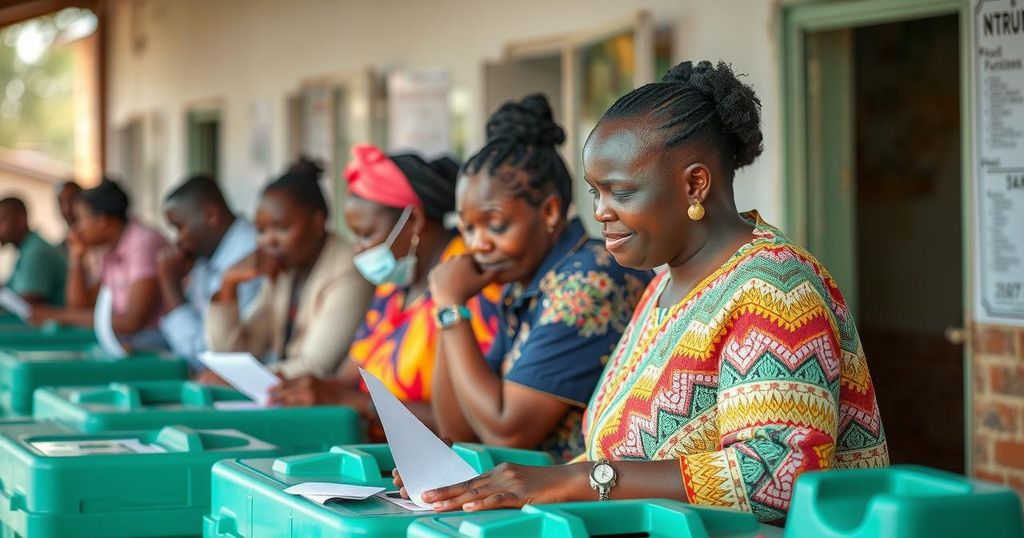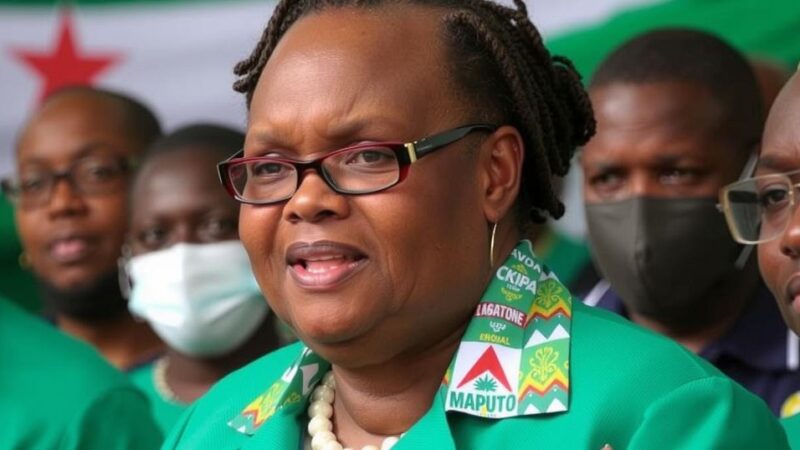Polling stations opened in Ghana for crucial presidential and legislative elections amid a severe economic crisis. The main candidates are Vice President Mahamudu Bawumia from the ruling NPP and former President John Dramani Mahama from the NDC, both facing criticism over their economic policies. With 18.7 million registered voters, these elections test Ghana’s democratic principles in the context of significant public discontent over economic conditions.
On Saturday, polls opened across Ghana for the presidential and legislative elections, marking a significant moment for the West African nation grappling with its worst economic crisis in a generation. With 18.7 million registered voters, the elections represent a critical test of Ghanaian democracy amid regional instability characterized by violence and coups. Despite a competitive field of twelve candidates for the presidency, the race has predominantly narrowed down to two main contenders: Vice President Mahamudu Bawumia of the ruling New Patriotic Party (NPP) and former President John Dramani Mahama of the National Democratic Congress (NDC).
Historically, Ghana has been a symbol of democratic progress in West Africa, known for its peaceful elections and economic growth. However, the country currently faces severe challenges, including rampant inflation and rising unemployment, prompting a significant portion of the populace, approximately 82%, to express discontent with the country’s trajectory. The elections are crucial in determining the future economic direction and policy of Ghana, with both leading candidates proposing different approaches despite similar platforms.
As voters head to the polls, they will also elect 276 members of parliament. As both candidates made their final appeals during campaign rallies, economic issues remained central to their messages, with Bawumia promising to build upon his party’s efforts to stabilize the economy, while Mahama proposed a comprehensive reset of Ghana’s governance and economy. Despite the festive atmosphere in the capital, Accra, the looming specter of economic hardship continues to weigh heavily on the electorate. With inflation peaking at 54% and the government having defaulted on much of its foreign debt last year, the stakes are high for both candidates as they seek to address the grievances of a frustrated populace.
Ghana’s elections come at a pivotal moment, both politically and economically. The country’s history of stable democratic practices contrasts starkly with the current socio-economic challenges it faces, including high inflation and unemployment. The economic downturn has diminished the quality of life for many citizens, prompting skepticism towards traditional political parties and their promises. The mention of illegal gold mining, a significant issue influencing the campaign, reflects broader environmental and economic concerns affecting the nation, illustrating the need for sustainable solutions as Ghana moves forward in its democratic journey.
In conclusion, the general elections in Ghana signify more than just a routine exercise in democracy; they represent a critical juncture for a nation facing profound economic difficulties. Voters are determined to seek credible solutions to their pressing issues as candidates present their visions for the future. The outcome of the elections will not only shape the government’s approach to economic recovery but will also reaffirm or challenge Ghana’s commitment to maintaining its democratic integrity amid regional uncertainties.
Original Source: www.newsday.com







